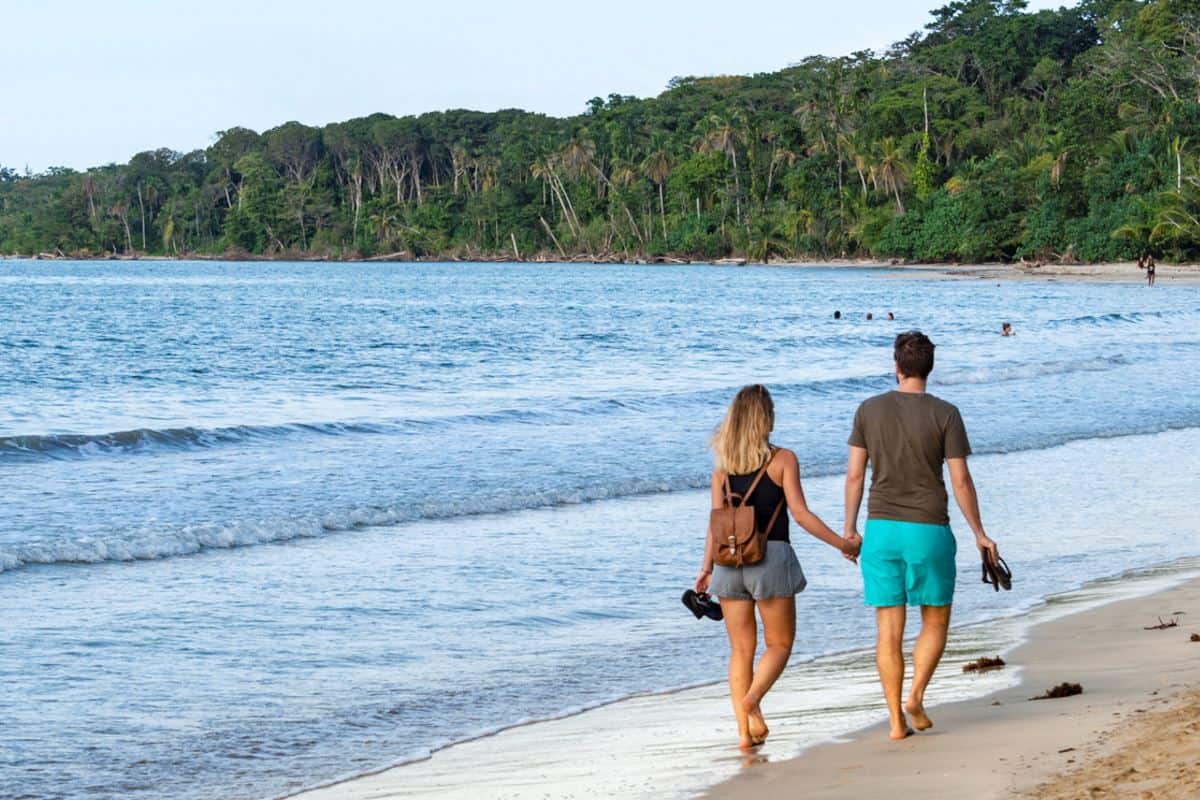Costa Rica is one of a select number of countries open to American travelers right now with very few restrictions. After enjoying an extremely successful 2021 on the tourism front, and with officials having high hopes for the year ahead, the country is once again firmly rejecting tightening entry requirements.
Due to its relatively relaxed border policy, the Central American nation currently ranks high on most tourist-friendly destinations lists, along with other tourism giants Mexico and the Dominican Republic.
Now, following a statement from the highest tourism authority in the country, it is safe to infer foreigners will still be able to visit Costa Rica hassle-free despite Omicron.
Tightening Of Border Policy Or Testing Requirements Are Definitely Not In Discussion
Recently, other extremely popular destinations in the Caribbean and Latin America have reimposed stricter travel rules for Americans, at a time when the region struggles to drive down infection figures.
With the Omicron wave yet to be controled and cross-border travel disrupted, many feared Costa Rica would be following suit in re-enacting testing requirements in the least.
However, as confirmed this week by the Minister of Tourism, Gustavo Alvarado, travelers will continue to be able to enter Costa Rica seamlessly. The reassuring statement has been welcomed by the traveler community, as well as the country’s hospitality sector, which is heavily reliant on tourism itself.
According to Alvarado, “for the moment, reintroducing negative test requirements for international arrivals is not being considered“, as the “rules of the game” cannot be changed.
Alvarado most likely refers to post-pandemic traveler confidence, which has been severely affected from the onset of this crisis. As it seems, Costa Rica is keen on boosting it, especially among vaccinated tourists, who have been subject to new restrictions when visiting other territories.
The fears are justified, with fellow sunny destination Hawaii, although part of the United States, now requiring a booster of immunized arrivals and several European nations adding expiry dates to vaccine certificates.
In defending his stance, Alvarado highlights that 8 out of 10 tourists arriving in Costa Rica are already fully vaccinated. Additionally, as of January 13, 69.54% of the local population has received at least two doses, further strengthening the nation’s protective barrier against Omicron and other more transmissible variants.
The Current Requirements For Entry To Costa Rica
From tropical landscapes to pre-Columbian heritage, the Central American nation is open to tourists from all around the world, including the U.S. and Canada, and welcomes both vaccinated and unvaccinated. No pre-departure testing is required either, though unvaccinated individuals must still acquire insurance before traveling.
If vaccinated and coming from the U.S., simply presenting a vaccination card will suffice. The vaccine must have been approved for use in Costa Rica and the last dose must have been given at least 14 days before arrival.
All major vaccines such as Pfizer, AstraZeneca, Janssen, Moderna, Sinovac and Sinopharm are accepted. All arrivals to Costa Rica are also required to complete a pre-departure Health Pass, available here.
Unlike Belize, which will require all travelers to take out a Belize-based insurance, Costa Rica currently allows the unvaccinated to select any international insurance company, so long as the policy is valid for the entirety of the stay and has a $50,000 coverage for medical expenses, including Covid infection.
Authorities also require that the policy covers lodging expenses in up to $2,000 in the event of a quarantine. When unvaccinated and visiting Costa Rica, American tourists should beware that, although the borders are unrestricted, some establishments inside the country may require a QR code as proof of vaccination for entry.
We still advise all travelers, irrespective of vaccination status, to purchase travel insurance before flying, as the chances of testing positive right before a planned vacation are higher than ever before.
The QR code can be easily generated by adding a vaccination certificate to the mandatory Health Pass, which is required of all arrivals before travel. Commercial establishments not requiring a QR code of visitors are currently operating under limited capacity.
Lastly, although the CDC presently lists Costa Rica as a “Level 2” destination, meaning risk is moderate, U.S. travelers are still advised to get vaccinated before flying.

